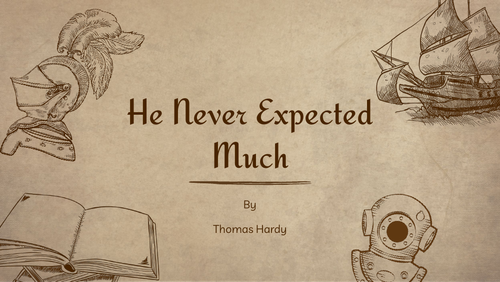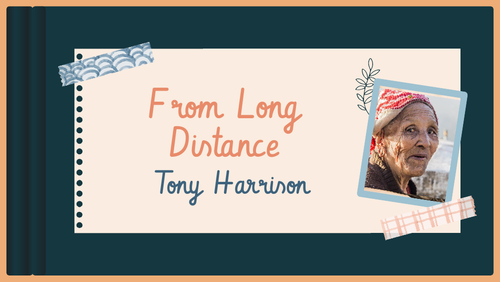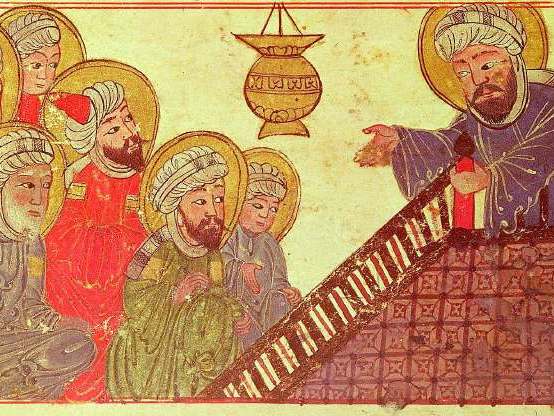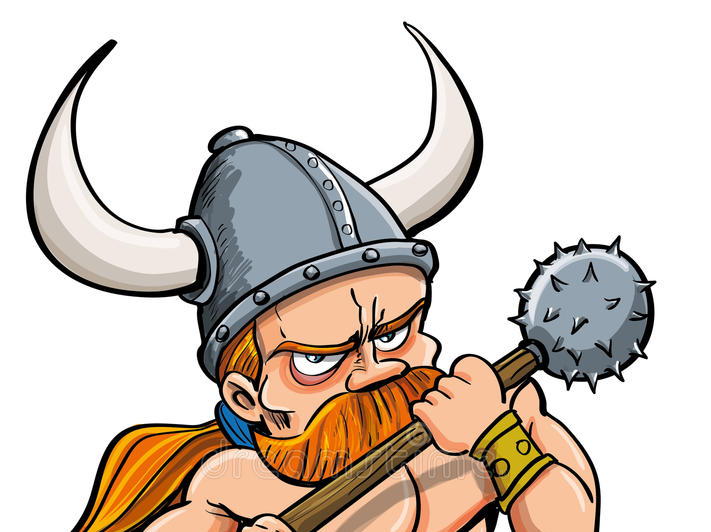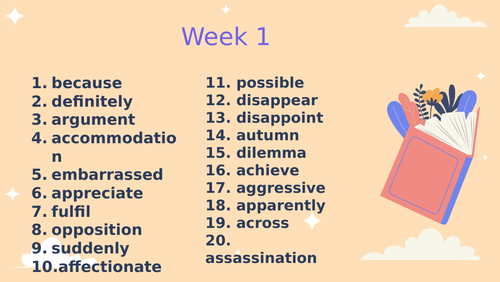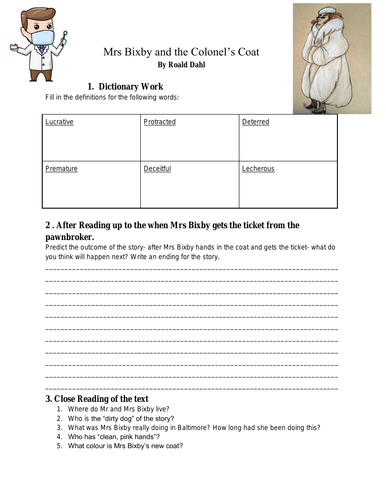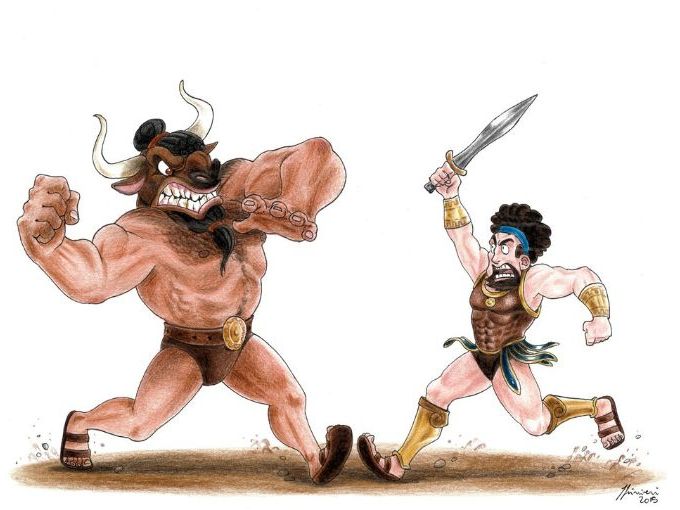17Uploads
5k+Views
2k+Downloads
All resources

Spirit of the Titanic Unit (Chapters 1-9)
Use this unit as an online learning resource, or edit the slides to be used for in-classroom learning.
Reading, Writing, Speaking and Listening exercises that follow along with a reading of the Nicola Pierce novel- Spirit of the Titanic.
Activities include:
Pre-reading task
Comprehension questions
Article writing (5Ws)
Research
Short oral presentation
Abstract thinking
Discussion questions
Group Work
Inference
Prediction
Analytical and Creative writing

The Spirit is Too Blunt an Instrument Lessons
A series of lessons exploring Anne Stevenson’s poem- The Spirit is Too Blunt an Instrument. Exploring:
Literary Techniques
Themes
Context
PEE analysis
Short, mid and essay- length questions

He Never Expected Much - Thomas Hardy
A set of five lessons for students to learn Thomas Hardy’s poem “He Never Expected Much” including a practice exam-style essay question.
Students will analyse language and themes as well as structure. There is also room for creativity and expression.

From Long Distance II - Tony Harrison
Full lessons for teaching From Long Distance II by Tony Harrison to iGCSE or GCSE English (Key Stage 4). Lesson includes exercises on literary devices, summary, short and long answer questions, vocabulary and poetic structure.

Speeches
An entire unit of work teaching students the components of speech writing, what makes a great speech, recognising, analysing and using language techniques, collaborative writing, writing mini speeches, and then finally writing a full-length 3 minute speech. This unit also includes relevant games, impromptu speeches, videos, worksheets and oral activities.

Lessons on Edward Thomas' Rain
3 lessons on the poem “Rain” by Edward Thomas. Guides students through new vocab, annotation, summarising, Point Evidence Explain questions, and some literary analysis.

The Islamic World in the Middle Ages
This booklet was created for KS3 History. Gives students a wider understanding about the Islamic world in the Middle Ages, Mohammed, ancient inventions, new vocabulary, and a fun presentation exercise to end off the unit. A mark scheme following the Cambridge guidelines has been provided at the end of the booklet so that students can better prepare for their presentation.

Vikings Unit
Designed for younger Key Stage 3 students. A full course on Vikings covering a range of tasks and content. Boost vocabulary, use skills to describe, explain and analyse, students have chances for creative, fun tasks, too.
Runes provided can be used to make puzzles, or students can write their own messages for their friends to decode.
Optional fill-in-the blank worksheet attached for inference skills.
Powerpoint attched to go along with the Origin Story - Norse Mythology.

Poetry from Other Cultures
An entire classroom unit working through poems from different cultures around the world. Contains activities and discussion points as well as speakers notes, videos and some opportunities for extension.
Poems looked at include:
A Wonderful Bird is the Pelican- Dixon Lanier Merritt
The Marriage of Poor Kim Kardashian- Sir Salman Rushdie
Island Man- Grace Nichols
Search for my Tongue- Sujata Bhatt
I’m no havin’ children- Len Pennie
Where I Come From- Elizabeth Brewster
Song about Country- Barbra Breeze Anderson
Before the Sun- Charles Mungoshi

The Man With Night Sweats
Several lessons of work on Thom Gunn’s The Man with Night Sweats, including contextual information and images, exercises on language techniques, and form and structure. Ending off with short answer questions, a mark scheme and some essay question choices.

Night Sweat- Robert Lowell lesson plans
A unit of work on Robert Lowell’s poem, Night Sweat. Includes summarising exercise, vocabulary, poetic devices, theme work, structure and form questions as well as short answer questions and two essay questions.

Request to a Year- Judith Wright
A unit of work on Judith Wright’s poem- Request to a Year. Includes new vocabulary, essay questions, literary techniques and questions on structure and form.

Story Writing (Autobiography and Hero's Journey)
Two presentations for an intro to storytelling. Describes the Hero’s Journey and helps students to identify it in familiar stories.

Form 1 (Grade 8) Weekly Spellings
A year’s worth of weekly spelling tests allowing for a “blind test” where students are tested on words they may not have seen. then, the following week they will do a “Retest” to see their improvement. Make sure to give students a week to memorise words. Learning can be reinforced by writing spelling sentences that use the words in between tests.
12-13 year old students should know these words before advancing to the next level.

Spelling words for the year (Form 2 or Grade 9)
Sets of spelling words for Key Stage 3 (Form 2 or Grade 9 specifically) for the whole year. Students can do a blind test one week and then a retest to see how they have improved the following week. In our school, we do 20 words in first term because there are no exams in this term. Term 2 and 3 are easier so that students can focus on revising other key content and concepts.

Mrs Bixby and the Colonel's Coat Comprehension Reading Task
This worksheet is designed to be used alongside Roald Dahl’s short story; Mrs Bixby and the Colonel’s Coat.
Worksheet contains pre-reading, mid-reading and post-reading tasks where students make predictions about the outcome, boost their vocabulary, do a close reading of the text.
Can be used for ESL learners.

Theseus and the Minotaur- a comprehension lesson
I prepared this lesson for my Year 7 history class- the majority of whom are second language English learners. Objectives are to observe, listen, extract information and be able to put it into their own words.
Gives students a physical context for the rest of the Ancient Greece unit.
Also includes a fun maze! :)



